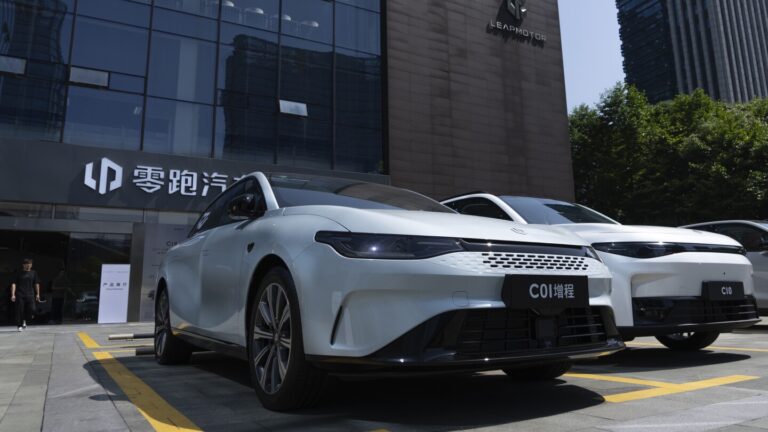HONG KONG (AP) – European automaker Stellantis said Tuesday it has formed a joint venture with Chinese electric vehicle startup Leap Motor to begin selling EVs in nine European countries later this year.
Stellantis CEO Carlos Tavares said at a press conference in Hangzhou that sales will begin in September for Belgium, France, Italy, Germany, Greece, the Netherlands, Romania, Spain and Portugal.
Starting in the fourth quarter, electric vehicles will be sold in India and the Asia-Pacific region, as well as countries in South America, the Middle East and Africa, Tavares said.
Stellantis and EV start-up Leap Motor did not provide details about where the electric vehicles will be produced, but said the locations must have “capacity to support sales” and meet quality standards and cost competitiveness. He said there is.
The models to be launched are the T03 and C10 models, and Tavares said the company plans to introduce one new model every year for the next three years.
“We expect international sales of these models to grow significantly,” he said.
The two companies announced that they will establish a new joint venture called Leapmotor International to manufacture and sell Leapmotor electric vehicles outside of China. Stellantis owns 51% and Leap Motor owns 49%.
Last October, Stellantis invested 1.5 billion euros ($1.61 billion) to acquire a 21% stake in Leap Motor and announced a strategic alliance.
Leapmotor CEO Zhu Jiangming said the partnership with Stellantis will give the company access to factories around the world as well as extensive overseas sales agents and distribution systems. .
“Future political and regional uncertainties are likely to make it inevitable for Chinese new energy vehicle brands to manufacture globally,” Zhu said.
His comments follow the Biden administration’s announcement. plans to impose new tariffs The move, which targets China’s electric vehicles, advanced batteries, solar cells, steel, aluminum and medical equipment, is likely to increase friction between the world’s two largest economies.
Both the United States and Europe have accused China of overproducing electric vehicles and dumping them on overseas markets.
—
This article has been amended to correct a typo in the name of the Stellantis CEO mentioned in the first instance.

